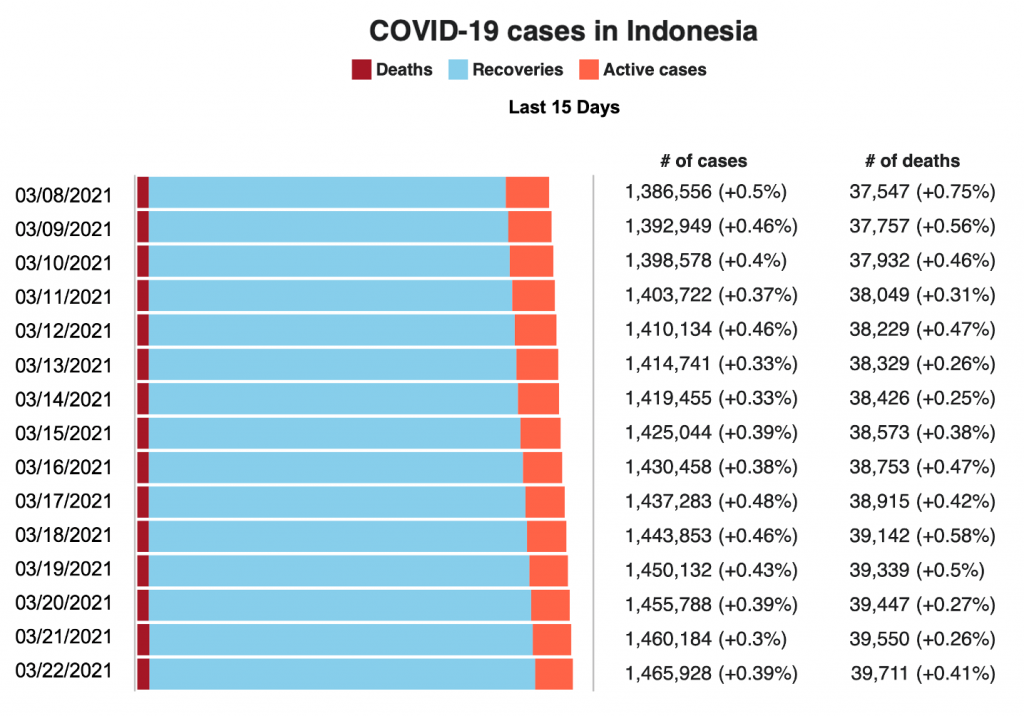Corona Virus Update #56 March 22, 2021
| The American Indonesian Chamber of Commerce and its members condemn the recent violent and murderous acts against Asian Americans here in the United States. Such acts and the hate behind them must be called out whenever they occur. We stand alongside our friends in the Indonesian Diaspora community. |
 |
| Cumulative number of reported cases: 1,465,528 (as of March 15) Recovered: 1,249,947 Deaths: 39,711 Fatality Rate: 2.71% Rupiah to US$14,418 Reserves ($US billion): 138.787 Jakarta Stock Exchange Index: 6324 |
|
||
Overview-Case detections declined six percent week‑on‑week – but rose significantly just within the past few days. The general downward trend since February does not stall. Positivity stands at 13 percent, on par with last week, and daily vaccinations exceed 200,000. Indonesia is ready to roll out the COVID-19 vaccine made by British-Swedish firm AstraZeneca after a brief delay over blood clot concerns, as the country’s drug regulator and top Muslim clerical body have approved its use. The Food and Drug Monitoring Agency (BPOM) announced that the vaccine was safe to use, a day after the European Medicines Agency (EMA), had said that its benefits in preventing hospitalizations and deaths outweighed the risk of its side effects. Travel- Restrictions RemainAt the current time, the Indonesian government still prohibits foreign visitors from transiting and traveling to Indonesian Territory unless they are in possession of a valid residence permit. Visa-free and visa-on-arrival entry for all foreign travelers, including U.S. citizens, remains suspended. The government has not indicated a timeline for when the restrictions on international visitors will expire. Visit Indonesian Immigration (https://www.imigrasi.go.id) and the Indonesian Embassy (https://kemlu.go.id/washington/en) for updated visa and entry requirements as regulations may change frequently. Economic-
The regulation introduces categories for the Foreign Worker Utilization Plan (RPTKA) and stipulates that applicants will now be required to submit specific documents to the Ministry of Manpower (MoM). An RPTKA refers to the detailed employment plan of the foreign expatriate, such as their position and length of employment. This is submitted to the MoM for approval by the employer, after which the company can apply for the work permit. Obtaining an RPTKA is the first step towards accessing a work permit in Indonesia. Employers that do not secure RPTKA approval or hire foreign workers in tech startups for more than three months can expect a fine, imposed per person, and on a monthly basis. An RPTKA will not be required for tech startups for an initial three months. Employers must submit an annual report to the MoM that covers the scope of the foreign worker’s employment, the education or training facilitated to Indonesian co-workers, and the types of technology transfer implemented
(sources: International and Indonesia news media, Bali Update (from balidiscovery.com), Reformasi Weekly, US Embassy website) |





